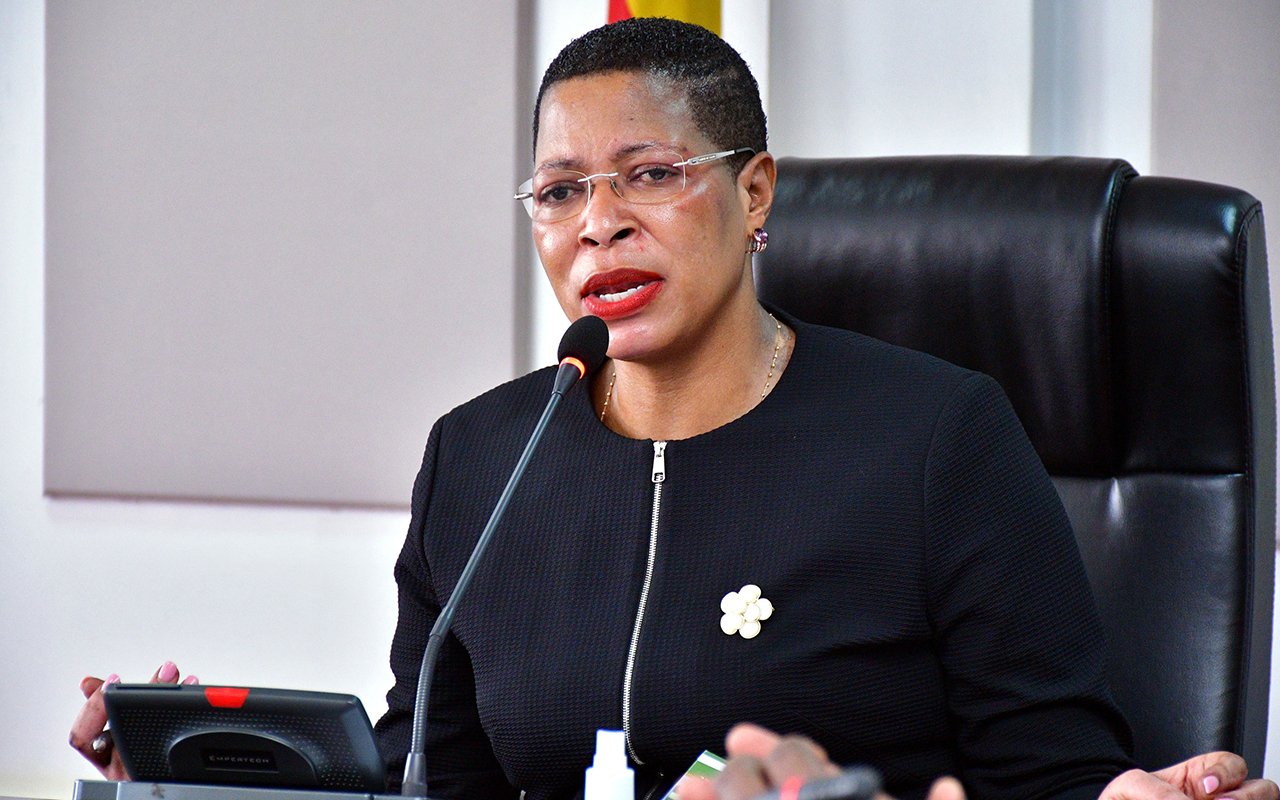Prime
UK diplomat: Don’t sit on the fence on governance matters

The outgoing British High Commissioner to Uganda, Ms Kate Airey (centre) with Chevening Alumni Association members at the High Commissioner’s residence in Nakasero on July 27, 2024. PHOTO | STEPHEN OTAGE
What you need to know:
- The Chevening Scholarship alumni were asked to be brave and add their voices to support the struggle for freedoms and justice.
The outgoing British High Commissioner to Uganda has egged on Chevening Scholarships alumni in the country to stop sitting on the bad fence on matters of fighting corruption and bad governance.
Ms Kate Airey said the alumni, who currently number more than 300 in Uganda, cannot remain apolitical amid rising demands by citizens for good and incorruptible leadership.
The Chevening Scholarship is the British government’s premier academic programme that enables emerging future leaders around the world to pursue one-year graduate studies at reputable UK universities so that they gain the skills to change their countries for the better.
Speaking on Saturday to the Ugandan alumni at her residence in Nakasero, a leafy neighbourhood in the inner city, High Commissioner Airey urged them to be brave and add their voices to support the struggle for freedoms and justice.
“We took a risk recently, you will know what I am talking about, and the courage I got from several people in this room, the small messages either on WhatsApp or even better … on X, on TikTok and others thanking the British government, meant that I am now braver to take another step,” she said.
The British government on April 30 sanctioned Parliament Speaker Anita Among, alongside current and former ministers, “for stealing from the poorest communities in Uganda”.
Those affected by the travel, financial, and asset freeze orders related to the mismanagement of iron sheets meant for vulnerable Karimojong include Goretti Kitutu and Agness Nandutu, two former line ministers sacked in a March Cabinet reshuffle.
“The actions of these individuals, in taking aid from those who need it most, and keeping the proceeds, is corruption at its worst and has no place in society,” then Deputy Foreign Secretary Andrew Mitchell said.
The ex-ministers are facing prosecution over the metal sheet scandal while the public prosecutor dropped the case against the Speaker and other notables who bought replacement iron sheets. All deny any wrongdoing. In her Saturday comments, Ms Airey said Chevening alumni should not underestimate the impact of their public proclamation in support of worthy causes.
Such affirmation to “those who have moved to do the right thing for right reasons” is important, she noted, “because every little token matters, numbers and building allies create safety”.
A group of anti-corruption crusaders last week staged a march to Parliament over corruption claims against House leadership and members, but security forces who shielded the people’s representatives largely thwarted the demonstrations.
About 100 were arrested and remanded to prisons on charges of being a common nuisance and being idle and disorderly. The Courts already expunged the latter offences from the statute books and public criticism prompted the Directorate of Public Prosecutions to recall the case files to amend the charges.
President Museveni in a statement last week accused the demonstrators who have publicly professed to be fighting corruption by thieving government officials, of being up to a worse mischief: plotting to do something bad against Uganda and Ugandans. He said he was keeping the proof to himself, but Ugandans would be shocked by facts revealed by the prosecution in court.
Rights groups and civil society leaders have rejected claims by the head of state that the demonstrators are foreign-funded to cause mayhem and satisfy imperialist interests.
Back at her residence, Ms Airey in her weekend comments said Chevening alumni in all spaces where they operate should be forces of good and ethical leadership manifested in high integrity, accountability, and honesty alongside making the best policy decisions to build Uganda. Asked for her views on the anti-graft protests and arrests, the envoy urged Ugandans to continue demanding for better quality services from their government so that they can achieve their fullest potential and develop the country.
Lawyer David Mpanga in a keynote address warned the alumni against surrendering their intellectual spaces to mediocre politicians that erodes the quality of governance and informed discourses to influence people-centred policies.
The elite, Mr Mpanga noted, should join active politics to redirect Uganda from its wrong footing on governance and economy, which he said could plunge the country into turmoil.




